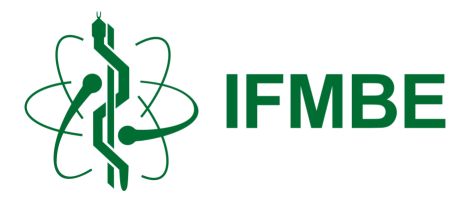|
|
Workshop on Clinical
Engineering Education and Training
Organized by the IFMBE
Asia-Pacific Working Group
in cooperation with the Clinical Engineering Division Schedule Program: 1:15-5:15PM
Monday 11th January 2010
Duxton Saigon Hotel
1. Results of body of knowledge
survey of clinical engineers
|
Ismael Cordero
Senior Clinical Engineer, Orbis International, New York, USA
|
|
|
Abstract:
In order to determine the essential knowledge that clinical
engineers need to perform their jobs, the American College
of Clinical Engineering (ACCE) conducted its last body of
knowledge (BoK) survey in 2005. The results of this survey
were then used to ensure that the questions asked in the
clinical engineering certification exam closely matched the
resulting BoK. This session will discuss the methodology
used and the results of the survey. |
2. Development of Biomedical Engineering in Hong Kong – From Cradle
to Certification
Albert Poon, Senior
Engineer, Electrical & Mechanical Services Department,
Hong Kong Government, Health Sector Division, EMSD Hong
Kong, China |
|
|
Abstract:
In the past 30 years, Biomedical Engineering in Hong Kong
has developed from cradle alongside with the needs of the
people, namely, academia engaging from research &
development to basic education and to formal degree courses;
industrialists progressing from OEM production to GMP and to
product design; clinical engineering services from
government provided procurement and maintenance services to
end users managing own engineering program and to open
market for the provision of biomedical and clinical
engineering services. The speaker will share with us how the
needs of stake holders at different stages of community and
policy development affected and promoted the maturity of
Biomedical Engineering, leading to Engineer Formation and
Certification. Today the small island Hong Kong is enjoying
a harmony of education, business activities, professional
standard, engineering activities and respective
contributions. This can be a good experience sharing of a
pilot model in the Asia Pacific. |
3.
Development and Progress of Biomedical Engineering Certification
Programs in Taiwan
Walter H Chang & Kang-Ping
Lin
Chung-Yuan Christian University, Taiwan ROC |
|
|
Abstract:
Taiwanese Society of Biomedical Engineering (TSBME) was
founded in 1980 and was affiliated to IFMBE in 1985. The
biomedical engineering (BME) education in Taiwan was
provided for more than 36 years since the first
undergraduate program established at Chung Yuan Christian
University in 1972. To date, there are 18 universities offer
BME programs with BS to Ph. D. degrees.
With these huge demands on continuously improving quality of
healthcare and promoting biomedical engineering industries
and services, our BME society started to initiate three
certification programs, including clinical engineer,
biomedical engineer, and medical equipment technician,
beginning in 2004. In this presentation, the category,
function, application requirement and process, examination,
and maintenance of these certificates will be thoroughly
introduced. Our nearly five-year experiences to operate
certification program will also be shared gladly. These
certification programs gradually attract attentions from
government, major hospital, and industrials after so many
years’ efforts were made. TSBME is still working on the
promotion of certification programs to hopefully push our
certificates to a national level to further consolidate
better services, quality, safety issues, and developments of
medical devices of healthcare in hospitals and industrials.
|
4.
JSMBE (Japan Society for Medical and Biological Engineering)
Activities in Clinical Engineeering Education
Ichiro Sakuma
Department of Precision Engineering、 Department of
Bioengineering, School of Engineering, The University of
Tokyo
Ken Ishihara
Department of Medical Informatics, Ehime University School
of Medicine |
|
|
Abstract:
In the workshop, current activities by JSMBE for education
of clinical engineers will be presented.
For education of Medical and Biological Engineering in
Japan, JSMBE organizes 5 training courses a year for
clinical engineers and conducts certification examinations
for clinical engineers having approximately 5000 applicants.
It also provides accreditation service for clinical medical
engineering specialists. JSMBE has been accredited 444
specialists in cumulative total. In 2008, the number of
participants was 1,117. JSMBE also conducted certification
examinations for clinical engineers having 4,775 applicants.
Clinical Engineers in Japan are licensed by the Ministry of
Health, Welfare and Labor. Although the examination is
independently prepared by the ministry, the above mentioned
training courses and certification examinations are utilized
as one of the important opportunities for evaluating the
levels of knowledge of those students who prepares for the
national examination for clinical engineers. The sources are
also used as continuing educational systems for clinical
engineers. JSMBE has two classes of certification. The 1st
class certification is for the experienced clinical
engineers. The examination pass rate in 2008 was 22.2 % for
433 total applicants. The examination covers basic aspects
on Medical Engineering and Medical Device related subjects.
Many students in schools for clinical engineering take the
second class certification examination as one of the
preparation for national licence examination. The
examination pass rate for the second class certification in
2008 was 29.3% for 1398 applicants in total.
JSMBE issues Transactions of the Japanese Society for
Medical and Biological Engineering quarterly including
review articles in the related areas and approximately 40
original peer reviewed papers. It also published Medical
Engineering Dictionary and textbook series in Medical and
Biological Engineering. Some of the textbooks are now being
translated in Asian countries.
|
|
